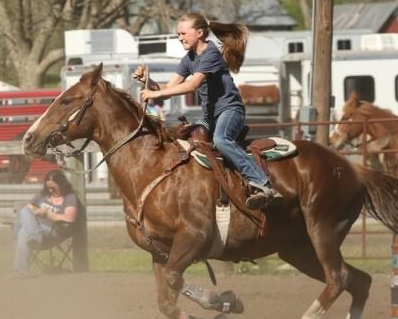Could dental pain be the culprit for your horse’s behavioral problems? A recent study published in the Journal of Equine Veterinary Science established a link between common equine behavior problems and abscessed cheek teeth. Periapical infections or abscessed cheek teeth are common in horses and will usually induce pain that is displayed in your horse’s behavior. According to the research, half of the cases of periapical infections were diagnosed during routine dental examinations, indicating that horse owners were unaware of the association between undesirable behavioral patterns of their horses and dental pain.
Schedule dental examinations to ensure your horse’s health, wellness and behavior are all in check.
Behavioral problems linked to tooth pain
Common behavioral signs associated with cheek teeth abscesses fall into three main categories. Some signs include:
-
Eating and drinking;
-
Eating slowly or taking frequent pauses while eating hay;
-
Turning his head while eating or dropping hay or grain from his mouth;
-
Dipping hay in water or avoiding drinking cold water;
-
Bit-related;
-
Evading the bit;
-
Headshaking, lolling tongue or opening his mouth when ridden and/or driven with a bit;
-
Rein contact worse on one side of the mouth; and
-
Resistance to bridling.
General behaviors that signal dental pain are as follows:
-
Withdrawn, intense stare, aggressive behavior or self-harm to his head;
-
Avoiding social interaction with other horses and people;
-
Bad-smelling breath; and
-
Poor performance, such as a decline in athletic ability.
Take the Zoetis Equine Dental Wellness Survey
To help you identify behavioral signs associated with dental abnormalities in your horse, Zoetis created an equine dental wellness survey available at https://baderrutter.co1.qualtrics.com/jfe/form/SV_6Jy0gJggdDf8OBn. This short survey will help you recognize many of the eating, drinking, bit-related and general behavioral signs that your horse may be displaying due to a tooth abscess.
Behavioral signs caused by dental abnormalities are crucial to identify. Recognizing these potential behavioral changes can help with earlier diagnosis, treatment and improved health and wellness for your horse.
If your horse is expressing any of these behavioral signs, work with your equine veterinarian to conduct an oral and dental examination. Annual oral and dental examinations is a recommended baseline of care of your horse. Depending on your horse’s age, level of performance and overall condition of the teeth, additional examinations throughout the year may be needed.


